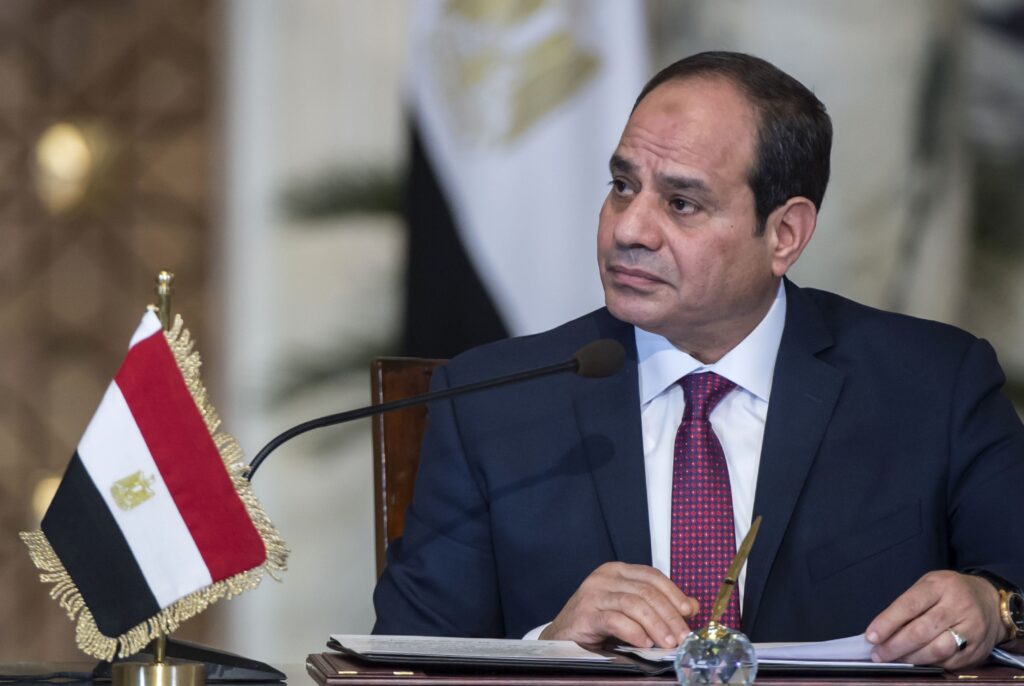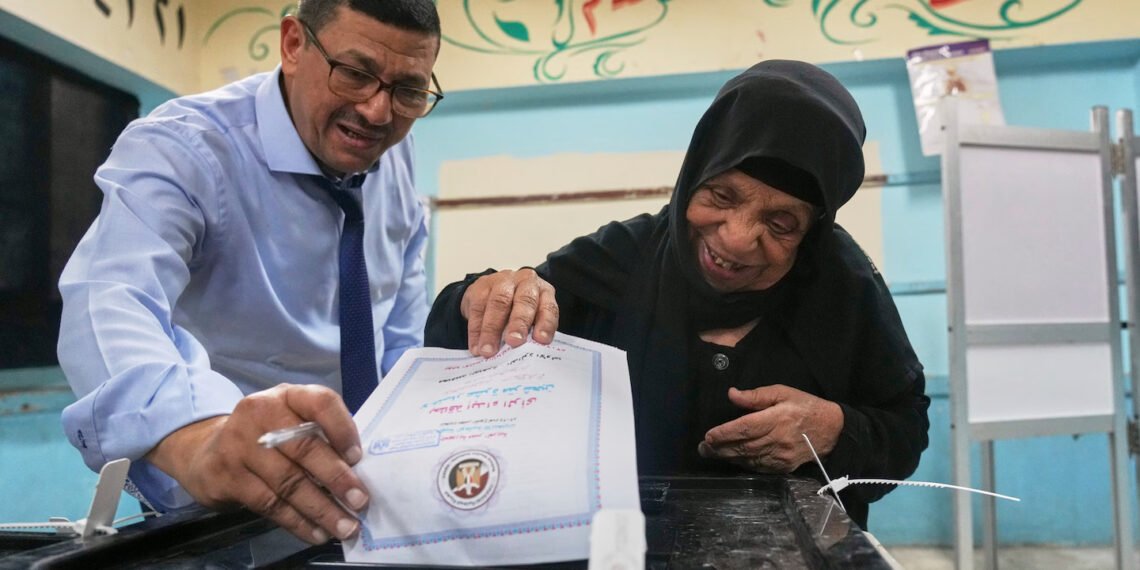Millions of Egyptians headed to the polls on Monday to elect new members of the Senate, the upper chamber of parliament tasked with offering guidance on critical legislation, national policies, and constitutional matters. The two-day election, which ends Tuesday, comes at a time when the country is experiencing widespread economic strain and simmering political tensions.
According to officials, over 63 million Egyptians were registered to vote across more than 8,000 polling stations nationwide. The election will fill 200 of the 300 seats in the Senate, with the remaining 100 members to be appointed by President Abdel-Fattah el-Sissi. The elected senators will serve five-year terms. Final results are expected to be released on August 12.
Despite the constitutional function of the Senate as a consultative body, the election arrives in a climate of growing public frustration. Inflation has continued to rise, squeezing household budgets and driving up the cost of everyday goods such as food and fuel. Many Egyptians are feeling the pinch and expressing concern about their long-term financial stability.

Sherine Abdel Azim, a candidate running on the ticket of the liberal Free Egyptians Party, acknowledged the mixed mood among voters. “While some voters she met knew which party they’d support, others annulled their votes without stating any reason,” she said. Still, she noted that a portion of the electorate was motivated by a sense of national duty, particularly in support of Egypt’s stance on the Gaza conflict.
“She spoke with voters who don’t have a certain candidate in mind but are participating to show support for the government, especially in its solidarity with Gaza,” she explained.
Frustrations Mount Amid Economic Hardship
Abdel Azim, who also serves as a deputy editor-in-chief of the state-owned Ahram newspaper, said her journey into politics began in the wake of the 2011 Arab Spring uprising. “I wasn’t fulfilled in just sharing my opinions on social media or through journalism. I wanted to have a voice inside the Senate,” she said. This marks her latest bid to contribute to shaping national policy from within the formal political system.
She is one of over 400 candidates contesting Senate seats in this second election since the body’s creation in 2019. The Senate was introduced following constitutional reforms that, while touted as a step toward broader political participation, have faced criticism for expanding presidential powers and entrenching military influence. Among the controversial changes was an amendment allowing President el-Sissi to remain in office until 2030.
On the campaign trail, Abdel Azim visited neighborhoods across Cairo, including Materya, Ain Shams, Gamelya, and Al-Azhar. She said residents there raised concerns about deteriorating public services. “Voters were especially concerned about healthcare in hospitals, medical insurance, and the disturbance caused by the increasing number of tuk-tuks,” she noted.
A newly amended rental law has also emerged as a flashpoint. The law, changed last month, permits landlords to increase rents that had been locked for decades under aging tenancy agreements. The update has stirred anxiety among renters, many of whom fear losing their homes.
“These are rightful demands coming from average citizens who love their country, but want to feel supported in these matters,” Abdel Azim said, adding that such bread-and-butter issues would guide her focus in the Senate if elected.
Egyptians living abroad were allowed to cast their votes last Friday and Saturday at consulates in 117 countries. With results pending and citizens weary from economic challenges, the election may serve as a barometer for public sentiment toward the current administration and its policies.
READ ALSO: Pakistan Resumes Forced Expulsions Of Afghan Refugees



















